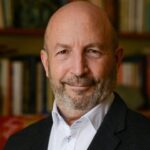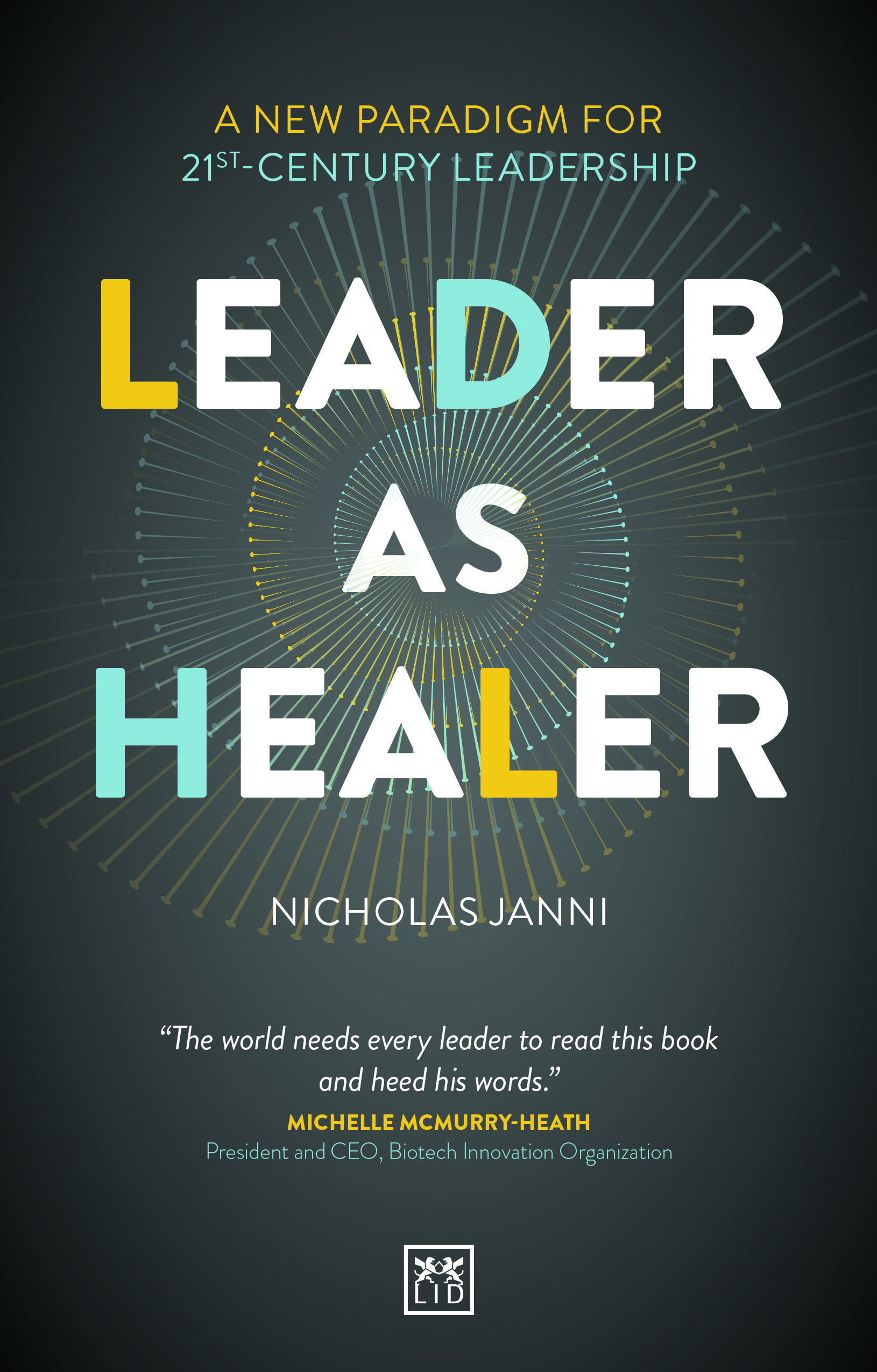|
Living a Life of Purpose by Nicholas Janni
By Guest Contributor Nicholas Janni, Author of Leader As Healer
Purpose arises from the deepest essence of who we are, and Carl Jung reminded us that living a life without purpose is like navigating a stormy sea with no rudder, anchor or compass
In a culture of absence and disconnection we can easily lose touch with that essence. This can drive people to keep moving, going as fast as possible and working crazy hours to avoid the gnawing sense of emptiness. This works only for a while because, as the American writer Studs Terkel observed: “Work is about a search for daily meaning as well as daily bread, for recognition as well as cash, for astonishment rather than boredom; in short, for a sort of life rather than a Monday-through-Friday sort of dying.”
Many of the senior leaders I work with are either at, or coming to, a point of deep reckoning — a sincere and sober questioning of what the point of their lives really is. This often creates a disquieting sense of emptiness, not the spacious feeling of connection that mindfulness brings. There is a dark, cavernous recognition that something is missing, and that there has to be more to life.
We have all been there. I remember one senior executive from a leadership programme I was running in the US. During a morning break, I found him standing outside amidst a beautiful, snow-covered winter landscape. After a deep session on purpose, he was in a state of shock. He turned to me and quietly said, “This is deep shit.” Indeed. But surely better to ask oneself difficult questions about aspiration, meaning and reason now, rather than face painful regret in later years.
To find answers to these questions, we need to connect deeply with our heart and body and offer ourselves the space and permission to feel our emotions, whatever they may be. We have to take time, as much as we need — time to digest the magnitude of these questions in relation to our own life.
Modern culture often seems ill equipped to help answer such questions. We easily deflect our discomfort, we joke about a ‘mid-life crisis,’ using humour to avoid feeling our fear and anxiety. Or we buy more stuff. Or we seek to acquire greater status. Or we medicate ourselves in numerous ways, numbing the feeling that all is not well.
Yet, choosing to navigate these questions more consciously, with the right support often creates a watershed moment, one that heralds deep transformation: the start of a richer, more fulfilled life.
One of the most famous lines in world literature speaks directly to this, from Dante’s Inferno, Canto 1:
In the middle of the journey of life
I found myself astray in a dark wood
where the straight road ahead was lost
When we find ourselves in a time of enquiry into the landscape of purpose and transformation, new questions arise:
- What is my true gift to life, my innate contribution?
- To what am I most truly devoted?
- What do I really stand for and against?
- How do I welcome and navigate the sense of unknowing?
- Where are the places of wonder in my life?
- What happens when I open up to what I have always excluded, and how much am I still driven by the need to ‘fit in’?
- Where is there a place for the sacred or transcendent in my life?
- Can I surrender? Can I bow to something that is greater than myself?
As our enquiry unfolds, two further questions help us on the way:
- What is the work that is mine to do?
- What is it that is being asked of me?
The first one invites a gradual and deep alignment. This has nothing to do with what I could do, or what I should do. It invites us to drop further into who we really are, what our foremost passions, inspirations and above all gifts are, that are unique to us.
As this clarifies, then the next question can take us a step deeper because it invites a surrender of some of the personal ego, of some of “this is what I want to do”, and a willingness and readiness to listen to a deeper call.
I am reminded of the old phrase “you have to be a Somebody before you can become a Nobody”….
As we engage wholeheartedly, we often discover two types of tension emerging, both of which need to be welcomed and precisely discerned. The first is the pull of the past. As I have noted previously, the experiences from our early lives that we tried to pack away begin to call for attention and take us to the places within where our fundamental needs — to be received, nurtured, and to belong — were not adequately met. If we allow these places in us to be felt, we begin to see how aspects of the individuals we have become (the ‘somebody’ we have each attempted to build) were in fact subtly but essentially based in the exclusion of these painful parts of our past. This work requires from us a deep level of vulnerability, but it allows our hearts to melt so that qualities of compassion, connectedness and humility may flourish.
The second tension is the pull of higher levels of consciousness, which are simply the successive stages of our human psychological and personal development. If mindfulness brings us to a first level of enhanced spaciousness, here we are called to an entirely different level of consciousness. Art, nature and silence become more essential, and a need for rational certainties recedes further into the background. In traditional cultures, people readily recognized this calling and retired into the forests, deserts or caves, literally or metaphorically, for a period of contemplation. No time limit was set for this task because the need to be in control no longer took precedence.
The Leader as Healer knows that purpose is born of contribution and service. If this sounds like so much over-idealistic altruism to you, consider that in 2018 psychologists from the University of Chicago’s Booth School of Business and Northwestern University’s Kellogg School of Management published research showing that the happiness we experience by giving to others lasts much longer than the satisfaction we experience by giving to ourselves. Furthermore, the researchers found that beyond a certain level of material wellbeing and affluence, having more money does not make us happier. In fact, it tends to do the very opposite. This research has since become a pillar among psychological studies into happiness.
The Leader as Healer is committed to creating a culture in which time for deep contemplation of purpose, individual and organisational, can be honoured They also embody the kind of leadership and organization that emerges when our tidy, individualistic identities become less rigid, and we are able to embrace a larger field of connectedness, a deeper sense of purpose, and a natural instinct for stewardship and service.
ABOUT THE AUTHOR

Nicholas Janni is a transformational coach and leadership development expert. Over the last 20 years, he gained an international reputation for his leadership programmes, designed for chief executives and top teams from diverse sectors, public and private. Nicholas also teaches at Oxford University and the IMD Business School.
Suggested Reading

Leader As Healer outlines both a theoretical and practical map towards a new form of leadership, one that embodies the ‘skill, heart, and wisdom’ that the current moment demands. The pathway Janni describes is one of integration and restoration, which is designed to reawaken the innate human capacities – physical and emotional, individual and transpersonal – that were previously discarded and forgotten during our perilous journey towards profit-maximization and “infinite” economic growth. It offers a way to grow ourselves as leaders and to heal our organizations.
